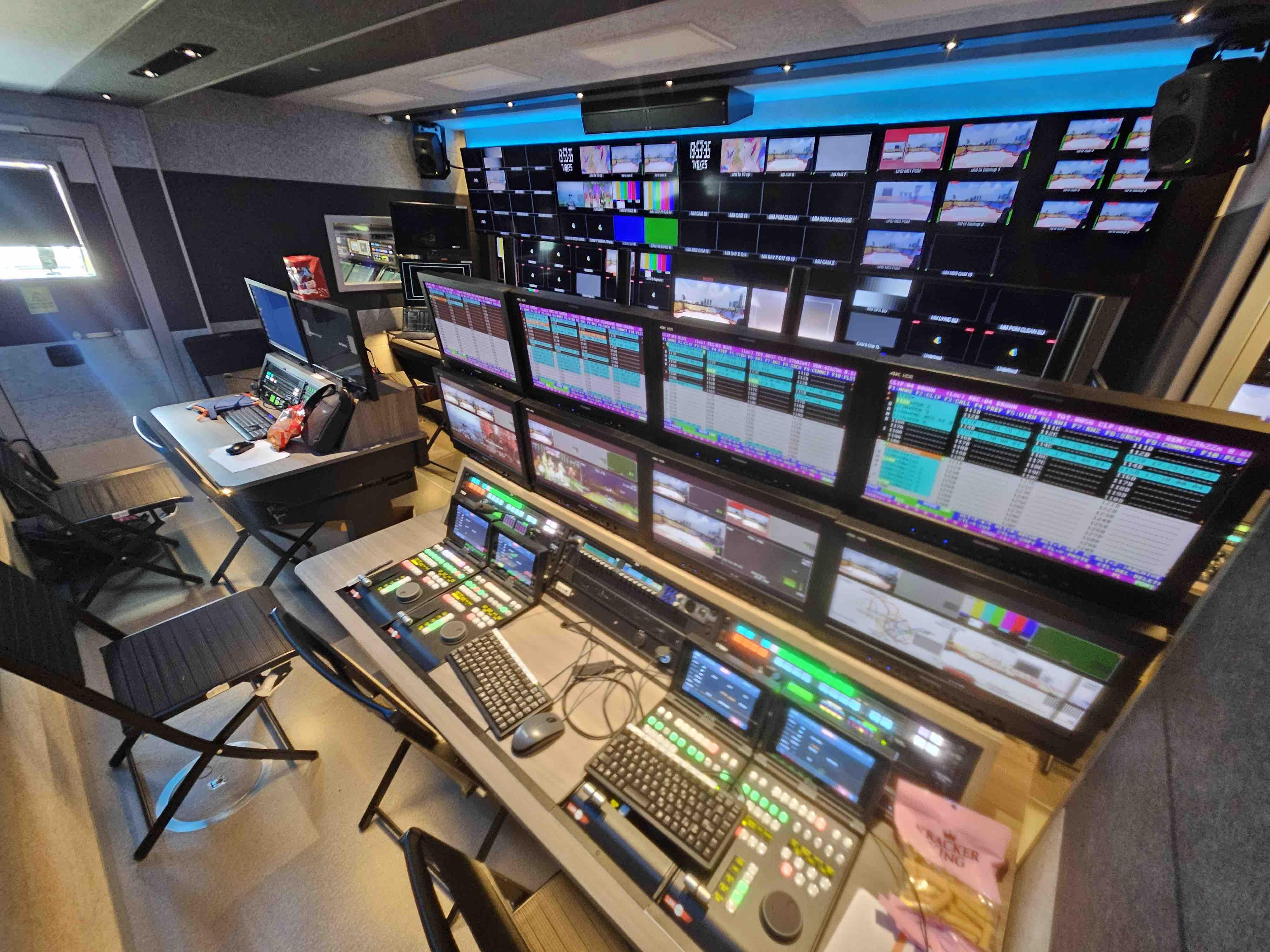The Olympic HD Challenge
Beijing Olympic Broadcasting“s engineering department has had it“s hands full preparing to broadcast the Beijing Games in HD, which is the first time the entire Olympics has ever been broadcast in HD.
However, the Olympic host broadcaster“s most demanding engineering challenge is probably not what you would expect.
One of the trucks that will be shipped to China from Europe.Sotiris Salamouris, head of engineering and operations for BOB, said securing remote production trucks and OB vans has been the biggest trial.
In 2005, Salamouris and his staff surveyed HD vendors and only found roughly 130 HD trucks in the world. Many were incompatible with the Olympics“ requirements—some were too small, others were not equipped for high-end sports, some were already booked, etc. BOB found there were not enough trucks available in the world to produce the Beijing Games in HD.
PRODUCTION SPIKE
They began to seriously consider sourcing a large number of fly-packs to supplement the available trucks. However, by the time 2006 had rolled around, BOB noticed that there had been an incredible build-out of HD trucks, including in China. With BOB“s encouragement, China went from two HD trucks in 2006 to around 18 HD trucks today.
The logistics of pulling the needed HD remote trucks together has been an incredible project for the engineering, finance and administration departments. Thirty-eight production trucks and as many as 20 support trucks (tenders) will be rented from across Europe.
These 38 HD production trucks will be in addition to the trucks coming in from around Asia. The total number of remote production trucks will add up to more than 60.
FLOATING CONVOY
After spending many hours considering various options, such as driving the trucks to Beijing (unsafe), flying them (too expensive) or moving them by train (some bridges were too low), the decision was made to ship them by one large vessel.
So, around the beginning of July, 36 HD trucks and as many as 20 support trucks from all over Europe will converge on the east coast of Italy and head out on an oceanic voyage together to work at the Games.
The ship will be dedicated solely to transporting Beijing Olympic Broadcasting“s trucks. It has no open decks so the seawater will have no effect on the trucks. The vessel has 13 decks that can carry up to 6,000 cars. It is usually used by car manufacturers to transport automobiles from Europe to Asia.
The trip should take roughly 19 days, with BOB being in direct contact with the captain on a daily basis via e-mail and telephone. The captain will be able to give progress reports as needed. The trucks should arrive in China around the end of July.
Two additional HD trucks will be shipped from Northern Europe directly to Hong Kong to cover the equestrian events.
Once all of the trucks arrive in China, they will need to be taken by drivers (who will have obtained Chinese driving permits) to the various Olympic venues. Each truck will have to be checked by security, inventoried and then put in place for the broadcast.
REROUTED RETURNS
The professional video industry's #1 source for news, trends and product and tech information. Sign up below.
At the end of the games, the trucks will be shipped back to Europe on a non-dedicated basis. Many of the trucks are already scheduled for events immediately after the games, so non-stop boats back to Italy will be used to return them quickly.
According to Stefanos Kourelas, BOB head of finance, human resources and administration, studying the various transportation options, working out the details and negotiating the contracts has ended up being the biggest project for the department of the entire Olympics.
He said the “the positive spirit and excellent level of support from the shipping company has helped overcome the challenges.”
It has been a huge task to orchestrate all of the different truck vendors, along with the shipping company, to get everything at the right place and time for the beginning of the Olympics Aug. 8. So, for 19 days a significant percentage of the world“s HD trucks will be on the sea, together, on one vessel.
When they safely arrive, Kourelas will finally get a good night“s sleep.
Jim Owens is the chair of the Communication Arts Department at Asbury College in Wilmore, Ky., has worked on the broadcast of 10 Olympics and is the author of Television Sports Broadcasting and co-author of the upcoming Video Production Handbook. He can be reached at jim.owens@asbury.edu.
